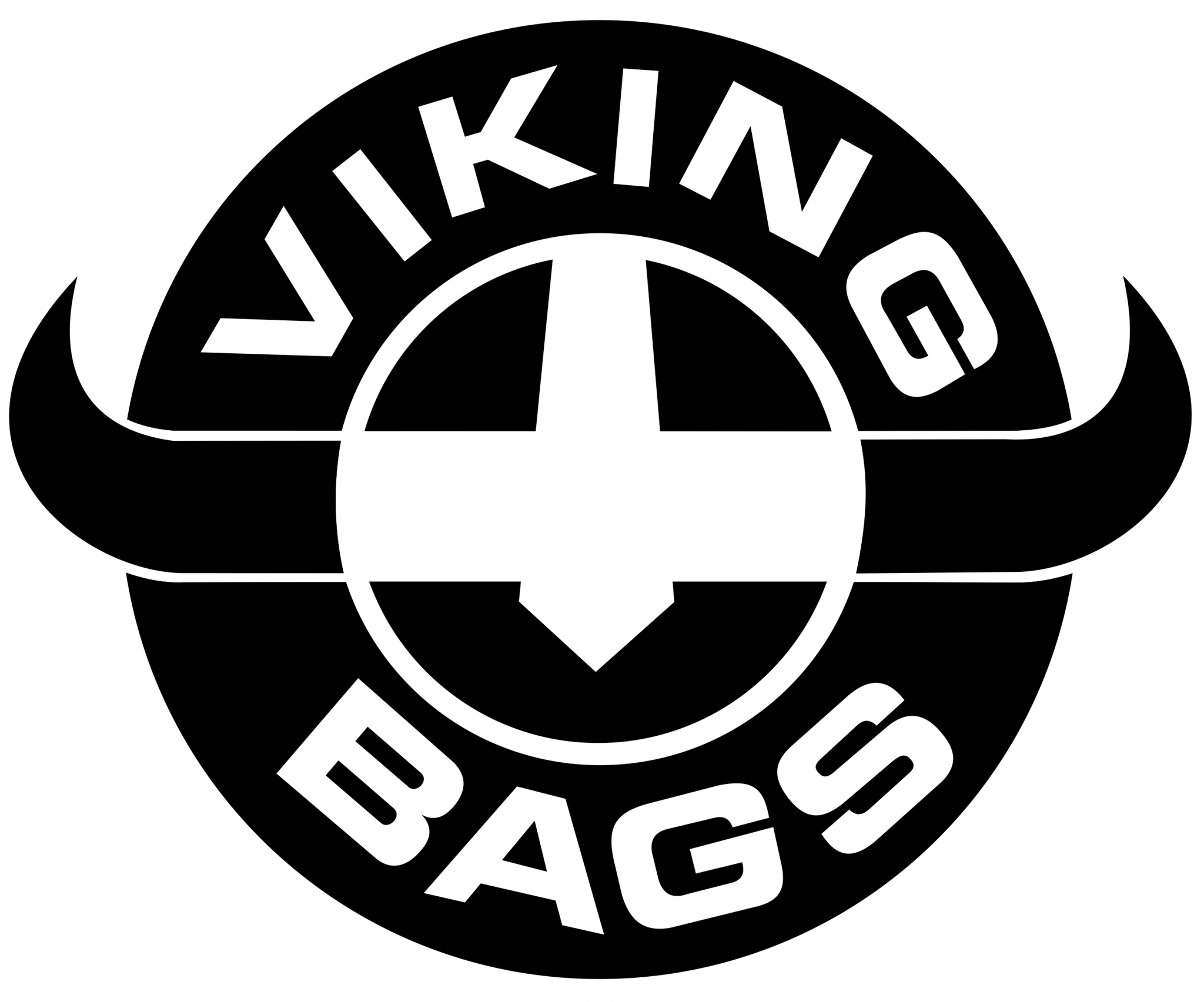Table of Content
1. Introduction
To be allowed to operate a motorcycle in Delaware or “the Diamond State,” you would need to get used to handling this vehicle on the street and become familiar with this state’s road regulations. Many of the qualifications to become a motorcyclist involve studying motorcycle laws, acquiring the necessary equipment, and reviewing paperwork. Of course, you cannot forget to undergo training on your own time and pass the necessary exams to prove you understand the responsibilities of being a rider.
So that the information sticks to memory and encourages you to ride responsibly, read about Delaware’s motorcycle laws and the steps to getting a Delaware motorcycle license below.
2. Delaware Motorcycle Insurance

While in Delaware, you will need your motorcycle’s registration and must own motorcycle insurance recognized in this state. It is mandatory to have since hefty fines can be levied against you for property damages and medical expenses for whatever involvement you had in an accident. Riding around without Delaware motorcycle insurance will either result in you being fined and/or your vehicle registration being suspended.
Your Delaware motorcycle insurance plan is deemed acceptable if it at least includes these expenses for bodily injuries and property damages:
$25,000 for bodily injury to a person per accident
$50,000 for bodily injuries to multiple people per accident
$10,000 for property damages sustained per accident
You are also required to own Personal Injury Protection which must cover the minimum costs depending on the number of individuals injured in an accident:
$15,000 for a single person per accident
$30,000 for all people injured per accident
Only paying for what is mandatory provides basic protection, but your motorcycle insurance may not be able to handle extra expenses. Optional forms of insurance deal with individuals without or with too little insurance, severe crashes, and unrelated damage caused outside of an accident:
Uninsured coverage
Underinsured coverage
Collision coverage
Comprehensive coverage
3. Delaware Motorcycle Helmet Laws

In Delaware, riders and passengers under the age of 19 must wear protective headwear so to prevent severe injuries when on the road.
The usage of motorcycle helmets have been instrumental in preventing motorcycle fatalities and promoting better roadside safety in Delaware:
According to the Centers for Disease Control and Prevention, motorcycle helmets reduce the risk of injury by 69% and reduce the risk of death by 37%
In 2016, motorcycle fatalities made up about 11.8% of total motor vehicle deaths in Delaware
In 2018, Delaware had 17 motorcycle fatalities which made up 1.5% of total crash victims
In 2019, there were 37 motorcycle crashes with five of them being fatal and 40 motorcyclists being injured
The best motorcycle headgear that you can rely on in Delaware are the three-quarter and full-face helmets. Both of them have been prepared and approved by institutions such as the Snell Memorial Foundation and the U.S. Department of Transportation.
Listed in this table below are the features that your motorcycle helmet is required to have in Delaware:
| Requirements | Three-Quarter Helmet | Full-Face Helmet |
|---|---|---|
| Has the Department of Transportation (DOT) sticker | ✔️ | ✔️ |
| Contours around your head to fit snugly due to comfort padding | ✔️ | ✔️ |
| No signs of damage Ex:// cracks, loose padding, scratches, or frayed straps |
✔️ | ✔️ |
| Has a face shield with no scratches | ❌ | ✔️ |
| Includes separate eye protection with no scratches Ex:// goggles, glasses |
✔️ | ❌ |
| Has a hard and durable outer shell that is shatter-resistant | ✔️ | ✔️ |
| Has an impact-absorbing liner inside the helmet | ✔️ | ✔️ |
| Gives you a clear, peripheral view of your surroundings | ✔️ | ✔️ |
| Securely fastened with neck- or chin-strap | ✔️ | ✔️ |
| Allows airflow without fogging up | ✔️ | ✔️ |
| Can allow you to wear sunglasses underneath | ✔️ | ✔️ |
4. Delaware Motorcycle License Laws

4.1 Delaware Motorcycle Learner’s Permit
If you wish to get a Delaware motorcycle learner’s permit as early as possible, you can plan to try for one after your 16th birthday.
When you apply for your Delaware driver’s license later, the fees for the motorcycle learner’s permit will be included. You will be able to practice with a Delaware motorcycle learner’s permit that is valid for six months.
To be given the Delaware motorcycle learner’s permit, you must fulfill all of the listed criteria:
-
If you are under 18 years old:
Complete a State approved Motorcycle Ride Education Course
Present identification documents
Provide proof of Delaware residency
Provide proof of U.S. citizenship
Provide your Social Security Number
Take a photo
Pass the knowledge exam
Pass the vision exam
Pay the required fees
For teenagers or inexperienced riders, there is considerable risk to their health and they do not have the know-how to avoid making mistakes. When they are training, riders with the Delaware motorcycle learner’s permit have to comply with the following:
You cannot carry passengers
You cannot operate between sunset and sunrise
You cannot operate on the federal interstate highway system
You must wear protective gear
4.2 Delaware Motorcycle Endorsement
If you have passed your 17th birthday, you have the right to obtain a Delaware motorcycle endorsement. To have it added to your Delaware driver’s license, the motorcycle endorsement must be paid for with $12 and is good for eight years.
Listed below are the requirements that have to be completed before you get a Delaware motorcycle endorsement.
| Requirements | Applicants Ages Below 18 |
Applicants Ages 18 and Above |
|---|---|---|
| Have a valid Delaware driver’s license | ✔️* | ✔️ |
| Complete a State approved Motorcycle Ride Education Course | ✔️ | ❌* |
| Held onto a Delaware motorcycle learner’s permit for at least 10 days | ✔️ | ✔️* |
| Provide proof of Delaware motorcycle insurance | ✔️ | ✔️ |
| Provide proof of Delaware vehicle registration | ✔️ | ✔️ |
| Fill out the appropriate driver’s license application | ✔️ | ✔️ |
| Must have the consent of a parent or legal guardian if you are a minor | ✔️ | ❌ |
| Provide your social security number | ✔️ | ✔️ |
| Pay required fees | ✔️ | ✔️ |
| Present valid photo I.D. | ✔️ | ✔️ |
| Take a photo | ✔️ | ✔️ |
| Take vision exam | ✔️ | ✔️ |
| Pass the knowledge test | ✔️* | ✔️* |
| Pass the road skills test | ✔️* | ✔️* |
| Provide proof of U.S. citizenship | ✔️ | ✔️ |
| Provide proof of residency in Delaware | ✔️ | ✔️ |
*Upon completing a State-approved Motorcycle Rider Education Course, you will be given a Student Completion Card. If you present this certificate, you will have the option of waiving both the knowledge and road skills tests.
*Though applicants over 18 years old are not required to take the State-approved Motorcycle Rider Education Course, completing it would allow you to bypass the requirements for the Delaware motorcycle learner’s permit plus both the knowledge and road skills tests.
4.3 Delaware Motorcycle License Test
Written Portion:
Complete 25 multiple-choice questions
Questions will be based on content from Delaware Motorcycle Operator Manual
Will be tested on an understanding of road rules and safe riding practices
Requires a passing grade of 80% or higher
Riding Skills Portion:
Will be conducted in a controlled, off-street area or an actual traffic environment
Your motorcycle will be subjected to a pre-ride inspection to ensure it meets safety standards
Demonstrate a basic understanding of motorcycle operation
You will be tested on your ability to stay within the speed limit, adjusting speed and position, maintaining visibility, operating under stress, accelerating, braking, turning, stopping, and swerving
The examiner will grade you based on how well you ride at safe speeds, stay within the lanes, and demonstrate riding maneuvers
5. Delaware Motorcycle Passenger Laws

Delaware has no laws that dictate a legal age to be considered a motorcycle passenger. Therefore, you must modify your motorcycle and add passenger-specific equipment to cover a broad age range.
The first is the passenger seat. The seat pad has to be dense enough so that your passenger is comfortable. It can include a backrest for extra back and spinal support, but it is not required. The optimal places to mount your passenger seat are these locations:
The back part of a large driver’s seat
Towards the rear as a separate saddle
Fixed to the side as a sidecar
These locations make it possible to attach handholds and footholds, which are integral in giving secure grips for the passengers and keeping them where they are supposed to be. As your passenger can range from children to adults, you have to confirm that they are fit for motorcycle travel before starting the engine. You can be sure of an individual’s eligibility by asking yourself these questions:
Can my passenger easily reach the footrests?
Can my passenger wear a tightly-fitting motorcycle helmet?
Can my passenger refrain from carrying packages in his/her arms?
Can my passenger understand and follow my directions?
6. Delaware Lane Splitting Laws

Delaware is a state that is undecided on the issue of lane splitting since it is not considered legal or illegal. If an accident occurs, you will likely be found at fault for the incident and will be denied monetary compensation. Because you bypass traffic at your own risk, it is best to avoid lane splitting if possible. The following examples are motorcycle behavior that falls under the category of lane splitting:
Riding on top of the dividing lines between lanes
Riding in between adjacent rows of stopped vehicles
Overtaking a larger vehicle ahead in the same lane
Delaware is a bit clearer when it comes to lane sharing, as it is allowed so long as the riders do so in a way that does not endanger themselves or nearby drivers. The following examples are motorcycle behavior that falls under the category of lane sharing:
You are allowed to make full use of the space within your current lane
-
You can only share a lane with another motorcycle if:
Both parties stay apart at least two abreast
Both parties consent beforehand
7. Delaware Motorcycle Equipment Requirements

Despite the tough yet sleek appearance of most motorcycles, the machinery that allows these vehicles to run tends to be more delicate than people think. The stress from overuse, debris getting caught, and damage from collisions could compromise the functionality of the primary components. Unless they are all in working condition, you will not be able to accelerate, brake, turn, or react properly when operating your motorcycle.
Horn
Wheels
Tires
Handlebars
Front & Rear Brakes
Controls
Headlight
Tail Light
Brake Light
Turn Signals
Exhaust System
Muffler
Rearview Mirrors
8. Sources
- Delaware Department of Motor Vehicles - Motorcycle Operator Manual
- Delaware Department of Motor Vehicles - Insurance Requirements
- Delaware Brain Injury Committee Motorcycle Survey Internet Statistics
- Delaware Department of Motor Vehicles - Driver’s License/Identification Cards Motorcycle Endorsement
- Delaware Department of Motor Vehicles - Driver’s License/Identification Cards Motorcycle Sample Written Test
- Delaware Department of Motor Vehicles - Driver’s License/Identification Cards Motorcycle Road Skills Test
- Delaware Department of Motor Vehicles - Motor Vehicle Fees












Leave a comment
All comments are moderated before being published.
This site is protected by hCaptcha and the hCaptcha Privacy Policy and Terms of Service apply.